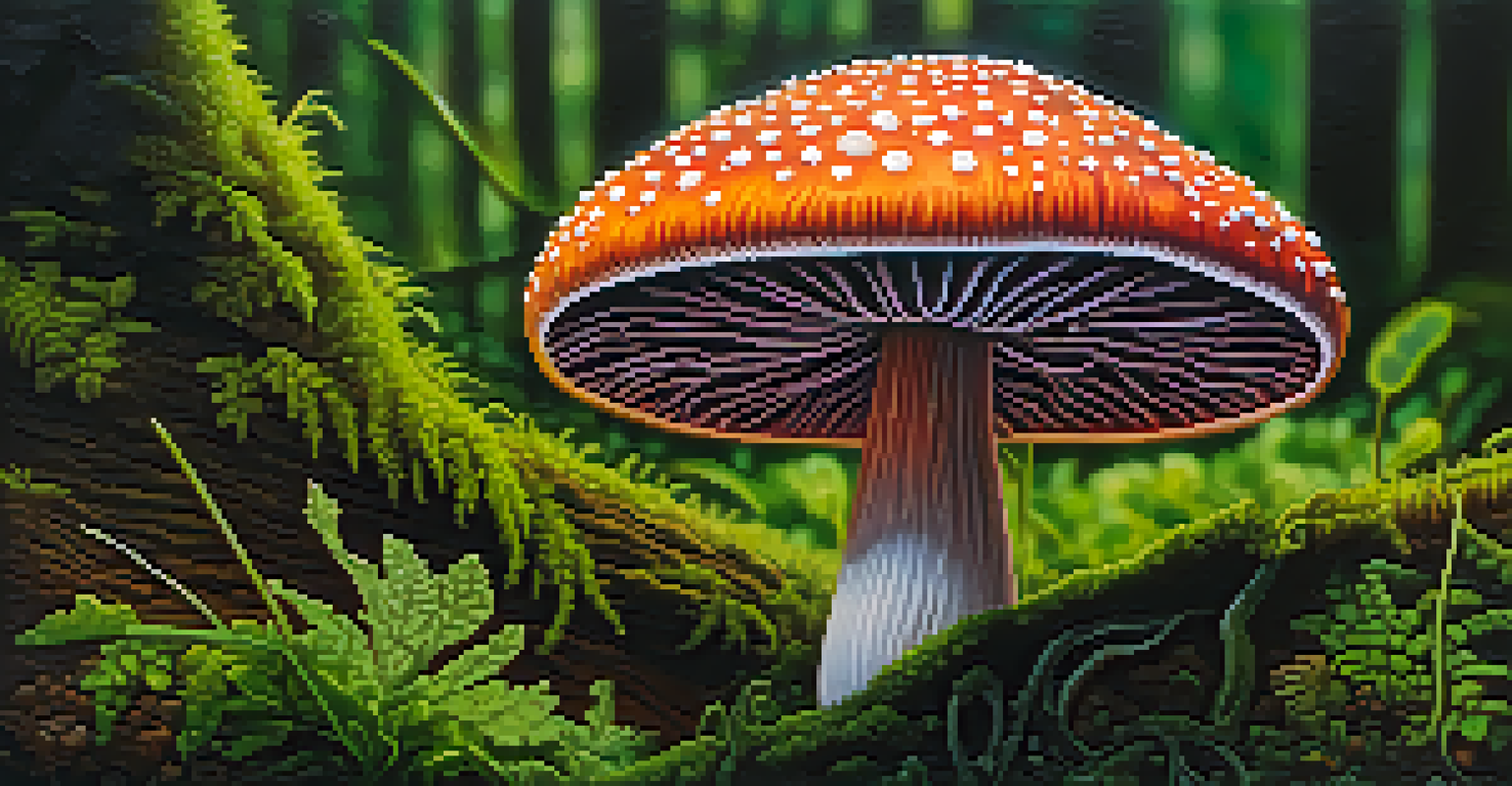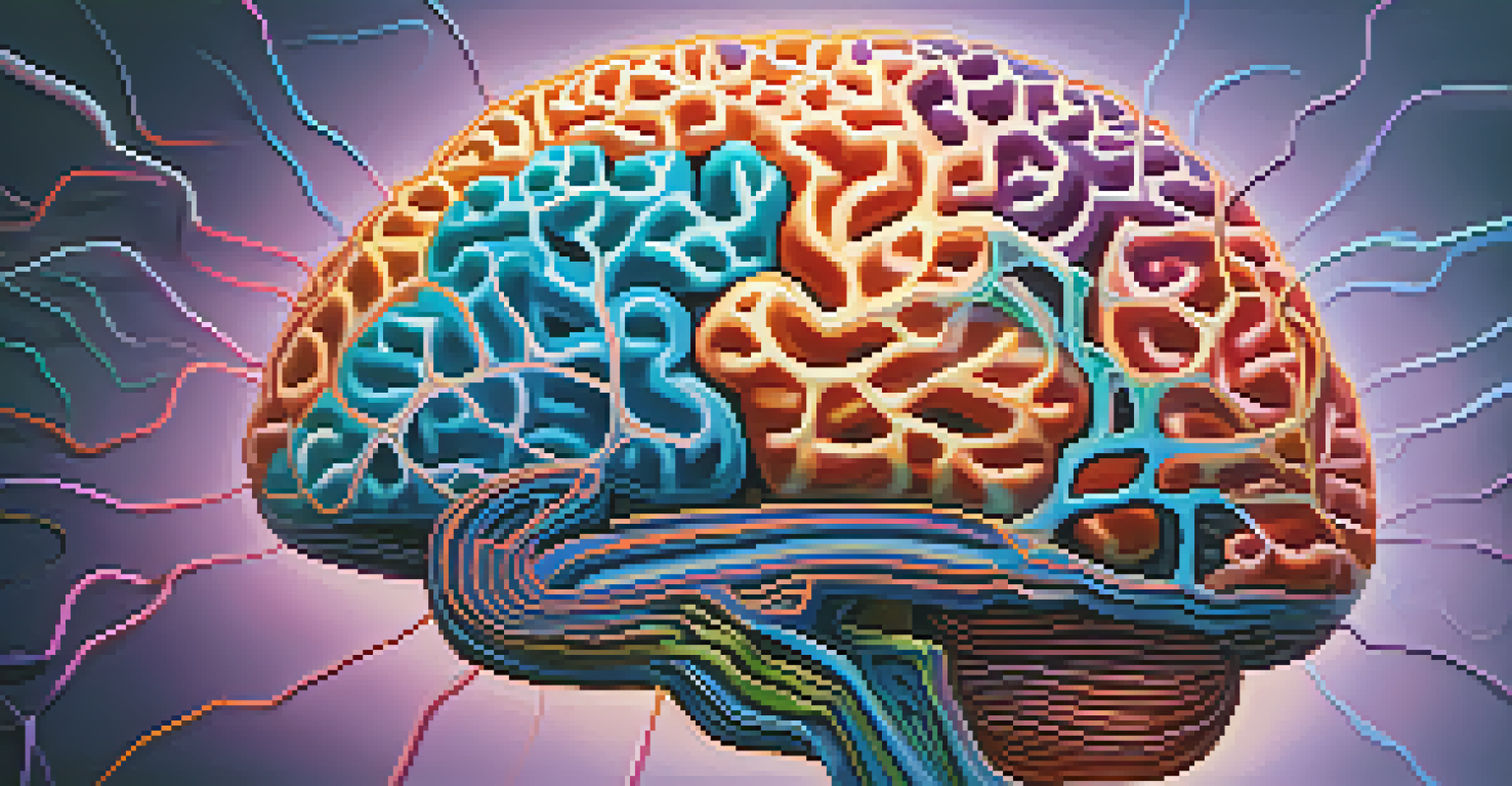Hallucinogens and Obsessive-Compulsive Disorder: A Review

Understanding Obsessive-Compulsive Disorder (OCD)
Obsessive-Compulsive Disorder (OCD) is a mental health condition characterized by persistent, unwanted thoughts (obsessions) and repetitive behaviors (compulsions) that individuals feel driven to perform. These behaviors can significantly interfere with daily life, leading to distress and impairment. For example, someone with OCD may fear contamination and wash their hands excessively, even to the point of injury.
The mind is everything. What you think you become.
The exact cause of OCD is still not fully understood, but it likely involves a combination of genetic, neurological, and environmental factors. This complexity can make treatment challenging, as what works for one person might not work for another. Traditional treatment options include therapy, particularly Cognitive Behavioral Therapy (CBT), and medication, such as selective serotonin reuptake inhibitors (SSRIs).
Despite these options, many individuals with OCD find that their symptoms persist or even worsen, prompting the exploration of alternative treatments. This is where hallucinogens, once stigmatized, are starting to gain traction as a potential avenue for relief. The growing interest in psychedelics in the mental health community is leading researchers to investigate their possible benefits for conditions like OCD.
What Are Hallucinogens and Their Mechanisms?
Hallucinogens are a class of substances that can alter perception, mood, and cognitive processes. Common examples include psilocybin (found in magic mushrooms) and LSD (lysergic acid diethylamide). These substances interact with serotonin receptors in the brain, leading to enhanced emotional experiences and shifts in thought patterns, which can sometimes be beneficial for mental health conditions.

The mechanism by which hallucinogens affect the brain is intriguing. They stimulate serotonin receptors, particularly the 5-HT2A receptor, which plays a crucial role in mood regulation and perception. This stimulation can lead to profound changes in consciousness and may allow individuals to confront and process their obsessive thoughts more effectively.
OCD Defined and Its Challenges
Obsessive-Compulsive Disorder (OCD) involves persistent unwanted thoughts and compulsive behaviors that can severely disrupt daily life.
Research has shown that these substances can induce a state of neuroplasticity, where the brain forms new connections and pathways. This could potentially help individuals with OCD break free from the rigid thought patterns that characterize the disorder. By promoting new perspectives, hallucinogens may offer a fresh approach to managing OCD symptoms.
Current Research on Hallucinogens and OCD
Recent studies have started to explore the effects of hallucinogens on OCD, with promising preliminary results. For instance, a small study involving psilocybin showed that participants reported significant reductions in OCD symptoms after just a few sessions. This suggests that psychedelics may provide a new therapeutic avenue for those struggling with traditional treatments.
Sometimes the most productive thing you can do is relax.
Additionally, researchers are investigating the potential for hallucinogens to facilitate emotional breakthroughs during therapy sessions. The intense experiences induced by these substances may allow individuals to confront deeply buried fears associated with their obsessions. This could lead to a greater understanding of their condition and ultimately improve their coping strategies.
While the results are encouraging, it's essential to approach this research with caution. The therapeutic use of hallucinogens is still in its infancy, and more extensive studies are needed to determine the long-term effects and safety of these treatments. As research continues, it will be crucial to establish guidelines and protocols for their responsible use in clinical settings.
Challenges and Considerations in Using Hallucinogens
Despite the potential benefits, there are numerous challenges associated with using hallucinogens as a treatment for OCD. One significant concern is the risk of adverse psychological reactions, which can occur during intense psychedelic experiences. Some individuals may experience anxiety, paranoia, or even psychotic episodes, making it critical to screen patients carefully before treatment.
Another consideration is the legal status of hallucinogens, which varies widely by region. In many places, these substances remain classified as illegal drugs, hindering research and limiting access for those who might benefit. Advocacy for decriminalization and further studies could be essential steps toward broader acceptance in the mental health community.
Potential of Hallucinogens in Treatment
Research suggests that hallucinogens like psilocybin may offer new therapeutic options for individuals with OCD, especially when traditional treatments fail.
Moreover, integrating hallucinogens into existing treatment regimens necessitates a careful approach. Healthcare providers need to be well-informed about the potential interactions with other medications and how to manage patients effectively during and after their psychedelic experiences. Creating a supportive environment is crucial for maximizing the therapeutic benefits.
Patient Experiences: Anecdotes on Hallucinogens and OCD
Listening to the experiences of those who have used hallucinogens to treat OCD can be incredibly enlightening. Many patients report transformative experiences, where a single session dramatically altered their perspective on their obsessions. For example, one individual described how a psilocybin session allowed them to see their compulsions as a separate part of themselves, rather than their entire identity.
These personal stories often highlight the emotional breakthroughs individuals have when under the influence of hallucinogens. Some have described feeling a profound sense of connection to themselves and the world around them, which helped them confront their fears and anxieties in a new light. Such experiences can lead to lasting changes in behavior and thought patterns, offering hope where traditional treatments may have failed.
While individual experiences vary, they underscore the potential of hallucinogens as a complementary approach to OCD treatment. However, it's essential to remember that these substances are not a cure-all and should be used in conjunction with therapy and other treatments for the best outcomes.
Future Directions in Research and Treatment
As interest in the therapeutic use of hallucinogens continues to grow, researchers are eager to conduct more rigorous studies to understand their effectiveness for OCD. Future research may focus on larger clinical trials that assess the long-term impact of these substances on OCD symptoms and overall mental health. This could pave the way for more standardized treatment protocols in the future.
Additionally, exploring the combination of hallucinogens with psychotherapy may yield promising results. Integrating guided therapy sessions with psychedelic experiences could enhance the therapeutic impact, allowing individuals to process their experiences more deeply. This approach may be particularly beneficial for those who have not responded well to traditional treatments.
Need for Caution and Further Research
While hallucinogens show promise for OCD treatment, careful screening and more extensive studies are necessary to ensure safety and efficacy.
Ultimately, the goal is to create a comprehensive understanding of how hallucinogens can fit into the broader landscape of OCD treatment. As we gather more data and refine our approaches, we may unlock new possibilities for individuals seeking relief from this challenging disorder.
Conclusion: A New Hope for OCD Treatment?
The exploration of hallucinogens as a treatment for OCD represents a significant shift in how we view mental health therapies. While traditional treatments remain foundational, the insights gained from psychedelic research may open doors to new, innovative options for individuals struggling with OCD. This evolving landscape sparks hope for many who have found little relief through conventional methods.
As we continue to learn about the potential benefits and risks associated with hallucinogens, it’s crucial to maintain an open dialogue within the mental health community. Collaboration between researchers, clinicians, and patients will be essential in navigating this complex terrain. By sharing knowledge and experiences, we can foster a more informed approach to integrating psychedelics into treatment.

In conclusion, while further research is needed, hallucinogens may hold promise as a complementary therapy for OCD. As we venture into this new frontier, we must remain committed to a patient-centered approach, ensuring that the needs and safety of individuals remain at the forefront of our efforts.